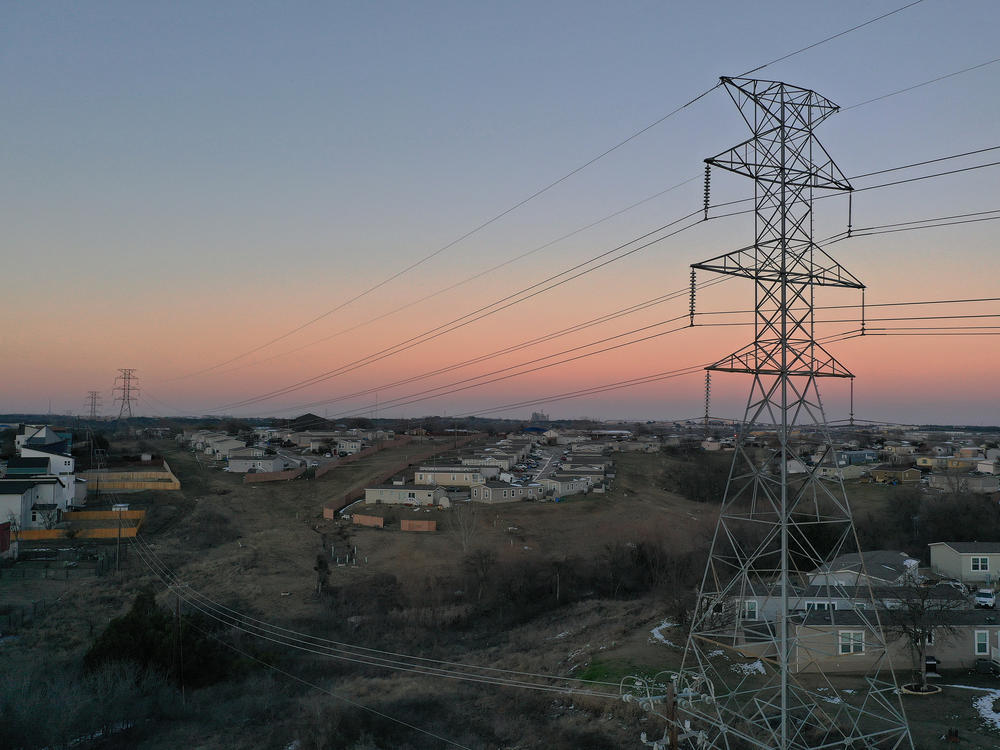Section Branding
Header Content
Texas Attorney General Sues Griddy, Saying Electricity Provider Misled Customers
Primary Content
Texas Attorney General Ken Paxton is suing Griddy, saying the electricity provider passed along massive increases during winter storms, leaving some customers to face up to $5,000 in power bills. Paxton's lawsuit says Griddy deceived customers when it promised low "wholesale" energy prices.
The state says it received more than 400 complaints about Griddy in less than two weeks.
"I do not have the money to pay this bill. We need help," one woman said in her complaint, according to the lawsuit. The woman, who lives in Houston, said Griddy charged $4,677 to her credit card for one week of electricity in an 800-square-foot apartment.
Customers say they were blindsided by the surge pricing, particularly when Griddy automatically charged their checking accounts or credit cards. In just days, they say, hundreds or even thousands of dollars vanished from their bank accounts. For many, that set off a cascade of overdraft fees and missed payments for other bills.
"They extracted money out of my bank account," a man in Fort Worth said of Griddy. "$500 yesterday alone and a [total of] over $950 for February."
Griddy warned its customers of potential price spikes in mid-February, as a prolonged wave of freezing temperatures began to hit Texas. The company even urged people to switch to another provider. But as the state's electrical grid faltered, energy companies, which offer more stable pricing, said new customers would have to wait at least a week before starting the process of applying for a new account.
"During the February freeze, Texas power companies failed to withstand the winter storm and left millions of Texans without power and heat during lethal, record-low temperatures across the state," Paxton's office says. It alleges that Griddy compounded the disaster by passing skyrocketing energy costs directly to customers.
The lawsuit is only part of the fallout for electricity companies in Texas. Earlier Monday, Brazos Electric Power Cooperative, the largest such entity in the state, filed for bankruptcy protection, citing a huge bill from the state's electricity grid operator.
Griddy customers pay a monthly $9.99 fee to the company, which then charges them for power based on the going rate in Texas' uniquely volatile and competitive electricity market.
But the state's lawsuit accuses Griddy of downplaying the risk of fluctuating energy prices. And it cites a Better Business Bureau alert from 2019, which said Griddy should not promise "wholesale" prices to consumers because it doesn't directly own or control a facility that primarily sells to retailers.
A Griddy customer who lives in Arlington, Texas, said in her complaint that the company took more than $1,000 out of her bank account — a shocking rise from the usual range of $49 to $61 she paid each month. The woman, who relies on Social Security checks in her retirement, said Griddy did not respond to her request for leniency and a delay in her payment due date to allow her to safely visit her bank.
"As Texans struggled to survive this winter storm, Griddy made the suffering even worse as it debited outrageous amounts each day," Paxton said via Twitter.
The state's lawsuit seeks an injunction to force Griddy to change how it operates, including ceasing "all collection efforts for energy use from February 12 through February 21, 2021."
The suit also seeks more than $250,000 in financial relief for Griddy's customers. It was filed in Harris County, where Griddy has an office in Houston.
Because of the dangerous failures of Texas' electrical system, Gov. Greg Abbott has called for an investigation into the group that manages the state power grid.
The storms and intense cold did not inflict suffering on every energy company in Texas — in fact, some of them profited handsomely during the crisis, particularly if they produce, own or transport natural gas or electricity.
"We were able to get super premium prices," an executive at natural gas company Comstock Resources told investors on a Feb. 17 phone call, according to The Washington Post. The cold snap, he added, was like "hitting the jackpot."
Copyright 2021 NPR. To see more, visit https://www.npr.org.

